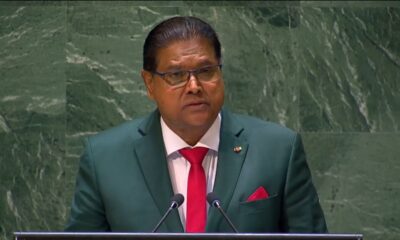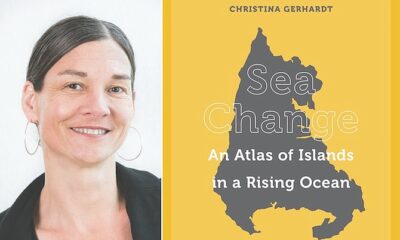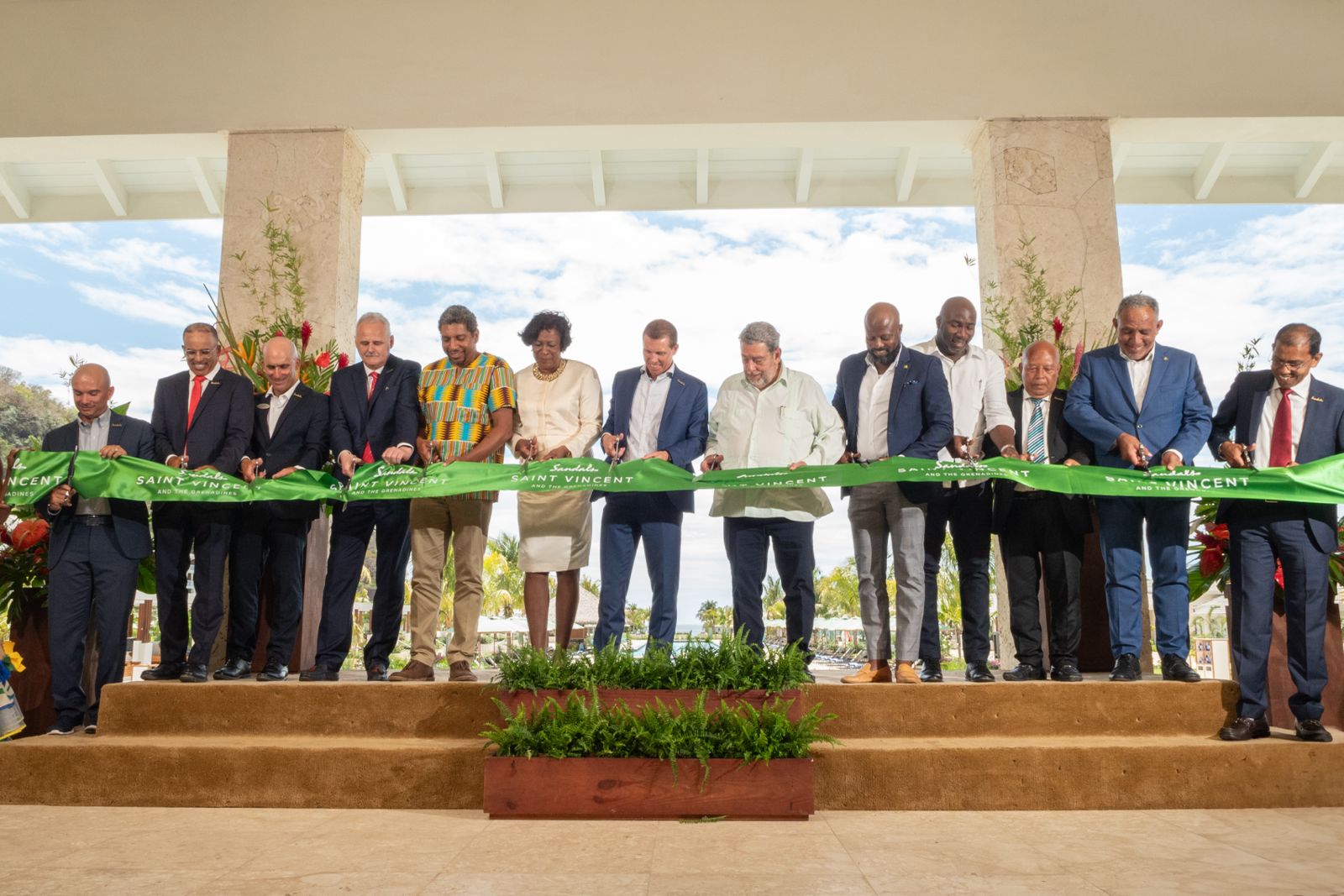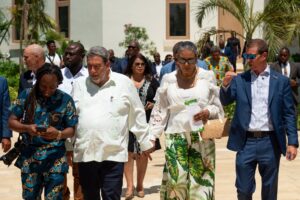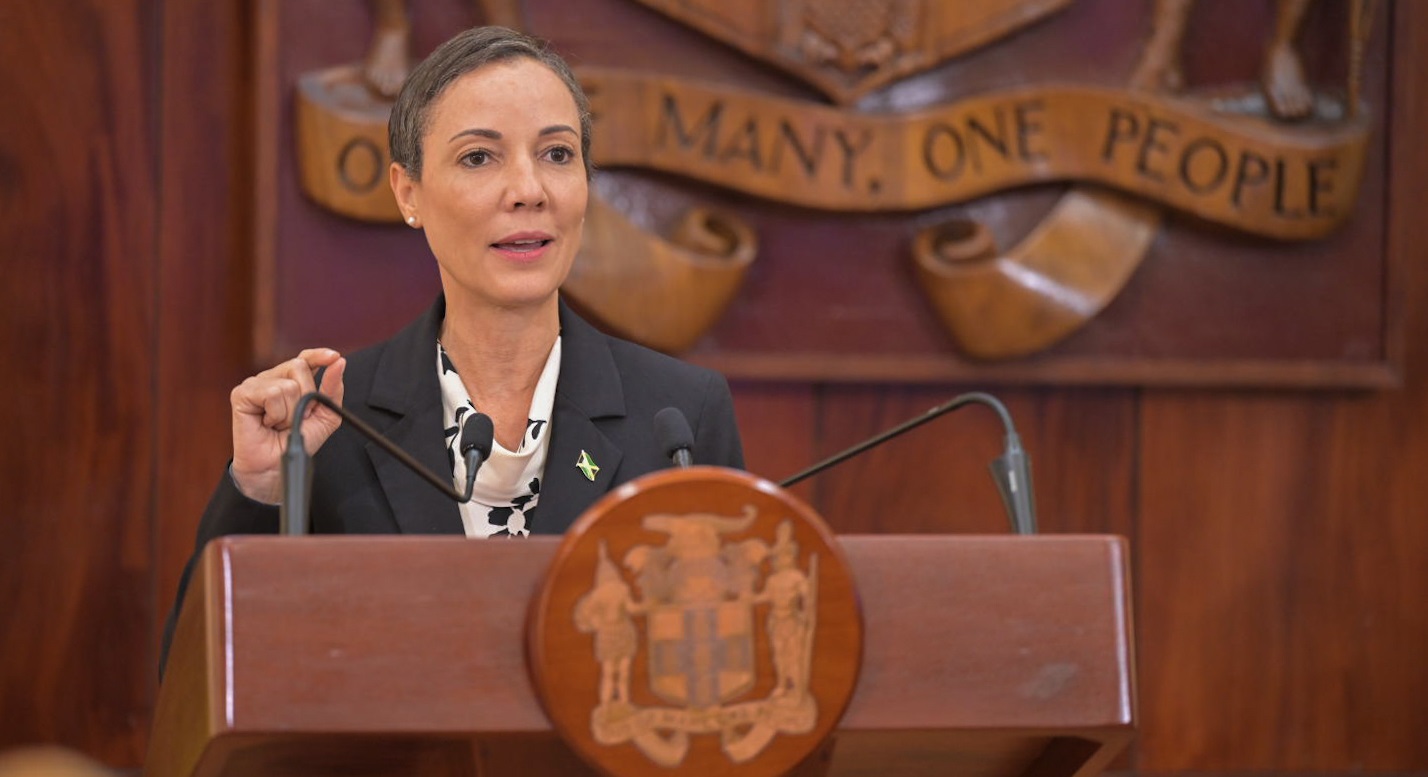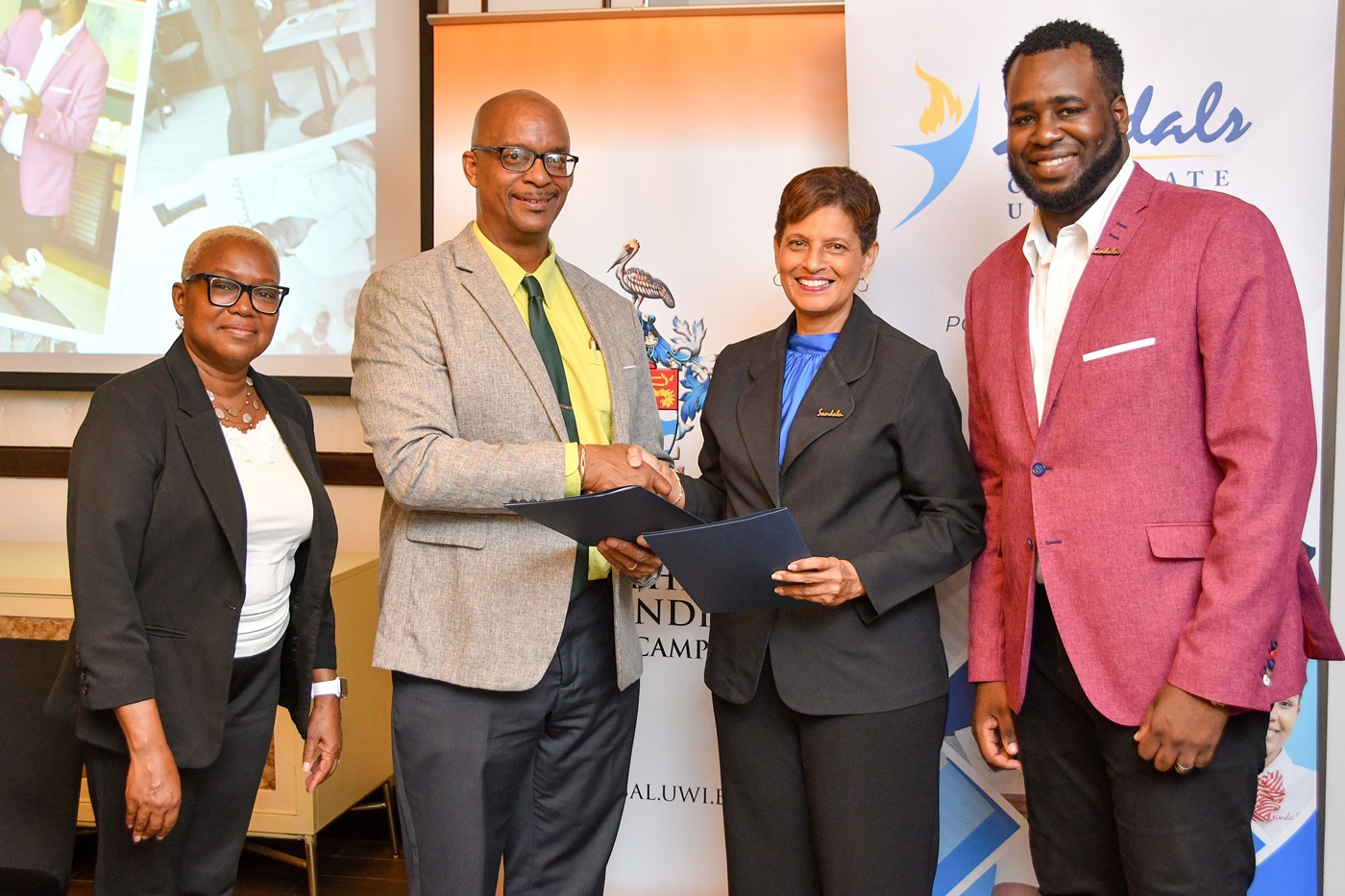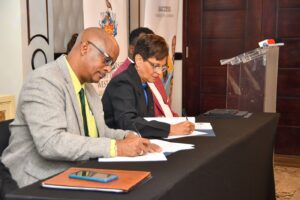#Kingston, Jamaica, April 17, 2024 – Minister of Foreign Affairs and Foreign Trade, Senator the Hon. Kamina Johnson Smith, says significant progress has been made with the publishing of names of the members of the Transitional Presidential Council for Haiti.
The names of the members were published on April 16 in the Le Moniteur. Haiti has been experiencing a humanitarian, security, socio-economic and political crisis.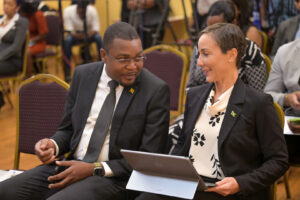
Establishment of the Transitional Presidential Council for Haiti was the landmark outcome following a high-level meeting of regional Heads, international partners, and Haitian stakeholders on Haiti, on March 11, which paves the way for a peaceful transition of power and the road to free and fair elections.
The high-level meeting was hosted by Jamaica and chaired by Guyana.
“The landmark outcome was the document which sets out the agreement to establish a transitional presidential council, comprised of seven voting members and two non-voting members, and the agreement that, on the establishment of the Council and their naming of a Prime Minister, Prime Minister (Ariel) Henry and his Council of Ministers would resign, paving the way for a new political process towards new free and fair democratic elections,” the Minister said.
Senator Johnson Smith was speaking today (April 17), at a post-Cabinet press briefing at Jamaica House.
“I just wanted to update that the process made significant progress yesterday (April 16), when the official decree naming the members was published in Le Moniteur in Haiti, as required by their legal procedures,” she stated.
She noted that queries arose when the decree was previously published without naming the members of the Council.
“The Council members have now been named… which we believe will set a new path, or rather a new energy behind the process which is under way,” the Minister said.
“There are still some issues that are being sorted out in terms of the content of the decree, but it has included the criteria that had been agreed in the outcome declaration of March 11, and does set the way for the next procedural steps on the path back to democracy,” she added.
The Minister noted, too, that a political accord has been developed by the Transitional Council, which builds out their areas of responsibility and sets a framework for how they will function.
“So, that has built a lot of confidence, in the sense that there is clarity around how it is they plan to vote internally and operate the areas of focus, including, of course, the establishment of the Provisional Electoral Council and a National Security Council that will manage arrangements in respect of the Multinational Security Support (MSS) Mission, which has been authorised by the UN,” she said.
Senator Johnson Smith encouraged members of the international community to provide support for Haiti.
“The partners continue to meet; the US, of course, has been the primary proponent of funding for the MSS, but we continue to encourage all members of the international community to provide support, even as they are providing support to other conflicts across the world. We also continue to thank Kenya for their willingness to lead the initiative,” she said.
The Minister said training for the multinational mission that will provide support to the Haitian National Police Force is also progressing.
“So again, I remind this is not an intervention. It is not a military intervention. It is not a takeover. It is a provision of necessary and practical support to a national police force that is outgunned and outmanned in the face of criminal gangs,” Senator Johnson Smith said.
The Minister noted that training is going well. “We have 59 members of the Royal Bahamian Defence Force, 50 members of the Belizian Defence Force here training at the JDF with support and engagement by members of the Canadian Defence Force, who again are all here in partnership, looking at how we can work towards restoring peace and stability in Haiti to set the stage for free and fair elections,” she said.
Contact: Chris Patterson
Release: JIS
CAPTIONS:
Photographer: Yhomo Hutchinson
Header: Minister of Foreign Affairs and Foreign Trade, Senator the Hon. Kamina Johnson Smith, addresses today’s (April 17) post-Cabinet press briefing at Jamaica House.
Insert: Minister of Foreign Affairs and Foreign Trade, Senator the Hon. Kamina Johnson Smith, converses with Minister without Portfolio in the Office of the Prime Minister, with responsibility for Information, Hon. Robert Morgan, at today’s (April 17) post-Cabinet press briefing at Jamaica House.
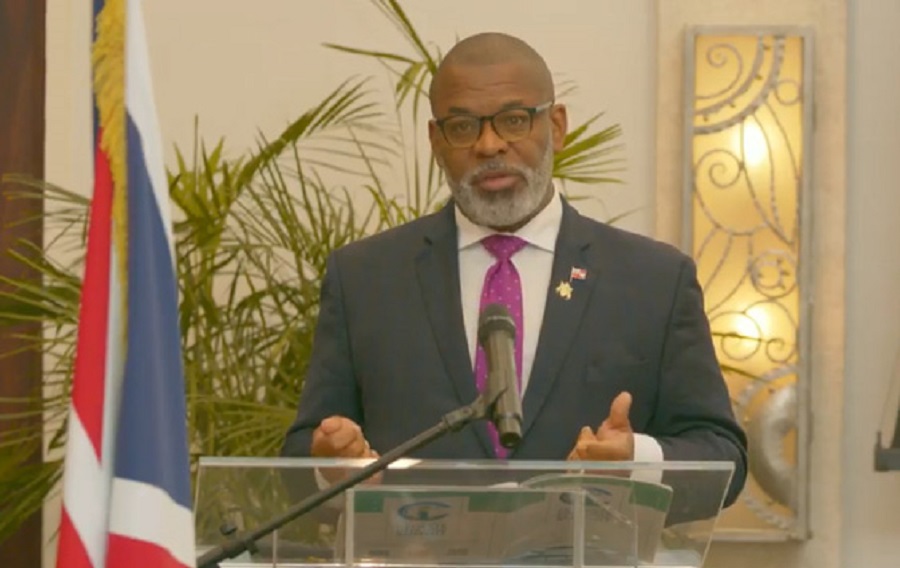

 Caribbean News1 week ago
Caribbean News1 week ago
 Crime1 week ago
Crime1 week ago
 Crime1 week ago
Crime1 week ago
 TCI News1 week ago
TCI News1 week ago
 Africa1 week ago
Africa1 week ago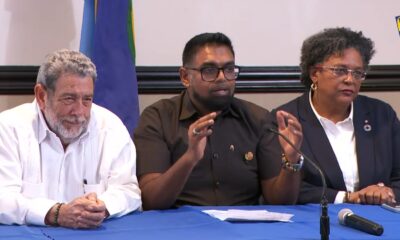
 Caribbean News1 week ago
Caribbean News1 week ago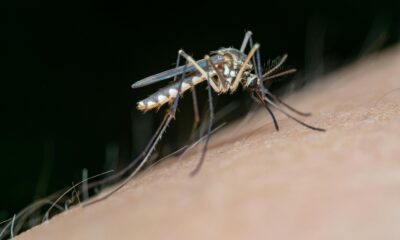
 Health1 week ago
Health1 week ago
 Health1 week ago
Health1 week ago





